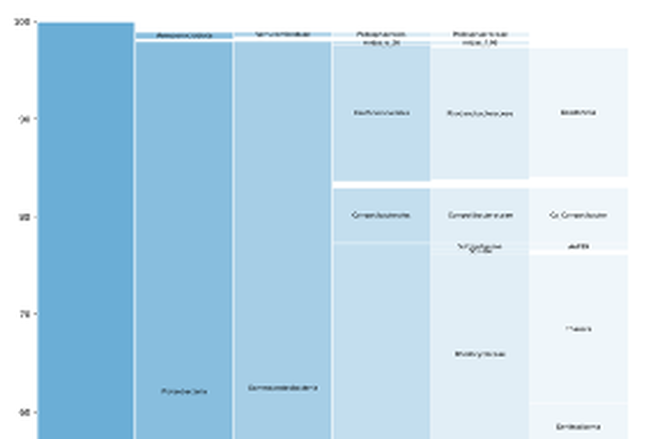For a bit of background, Microbial Community Analysis (MCA) uses genetic information found in all bacteria and archaea as a “bar code”. The bar code is then processed through wastewater specific microbial databases for identification down to the genus level. At first, this was admittedly an academic exercise as the data generated from a single test often includes 70,000+ reads and over 100 MB of data. Making sense of the data was one of our earlier challenges.
The MCA report
Functional Groups Summary
This is the quick glance portion of the report. Genera with known ecological niches and biochemical pathways are classified into the groups of most concern to WW operations. The functional group summary allows for easy time series tracking of population drift associated with time and any operational changes. Below is the Function Groups Summary table - with % of reads in each functional group.
After the Function Group Summary, top genera at >0.1% of total reads are listed in a table with their known functions. This gives information on system microbial diversity. This list can be over 100 genera in length, but below is a short example of the table.
As we run the raw sequences through the databases, the reads are moved to increasingly specific classification. We move from Kingdom in steps down to Genus ID. Some reads do not fit and get stuck at higher levels. This data is not discarded, we know the reads and can make inferences based on information gathered from other systems. Below is the Taxonomic Chart presenting how the sequences are classified from less to more specific.
As a wastewater technology company with an advanced molecular testing lab, Aster Bio specializes in interpreting and working with our customers to deliver benefits from these new monitoring tools. Every facility has different needs and objectives, we look at each application as a way to further explore the wastewater microbiome and improve test usefulness. If you are interested in learning more about MCA and other molecular testing options, visit our website at www.environmentalgenomics.com, call us at 713.724.0082 or drop us an email at [email protected].




 RSS Feed
RSS Feed